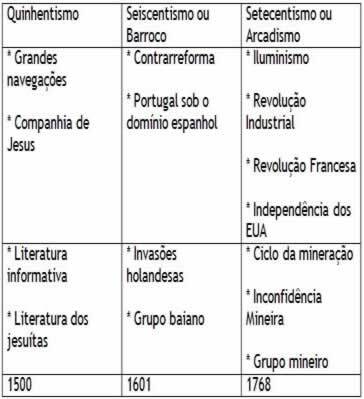ConceptionEvaristo is a great exponent of literature contemporary, novelist, poet and storyteller, honored as Literary Personality of the Year by the Jabuti Award 2019 and winner of the Jabuti Award 2015. In addition, Conceição Evaristo is also researcher in the field of comparative literature and worked as a teacher in the public schools in Rio de Janeiro.
Her works, whose literary raw material is the experience of black women – her main protagonists – are full of reflections on the profound Brazilian racial inequalities. Mixing reality and fiction, Her texts are valuable portraits of everyday life, instruments of denunciation of racial and gender oppression, but also turn to the recovery of the ancestry of Brazilian blackness, purposely erased by the Portuguese during the centuries in which the slave trade.
![Portrait of Conception Evaristo. [1]](/f/3cc5063a1a8137a4354acf483f721a3d.jpg)
Biographyof Conceição Evaristo
Maria da Conceição Evaristo de Brito she was born on November 29, 1946, in Belo Horizonte (MG). She was the second of nine siblings. she had the
childhood and adolescence marked by misery, in the extinct Pindura Saia favela in the south-central region of the capital of Minas Gerais. She worked as a nanny and cleaner while attending high school, aspiring to a career as a teacher, but when she finished her regular course, she couldn't find a job in Belo Horizonte.At the time, there were no competitions for teachers in Minas Gerais: classes, only for those nominated. Thus, Conceição moved, in 1973, to Rio de Janeiro, where he graduated in Arts from UFRJ and pursued a career in teaching, teaching in the public schools in Rio de Janeiro until his retirement in 2006.
His debut in literature took place in 1990, when six of your poems were included in volume 13 of the collection black notebooks, periodical literary publication that began in 1978, with the intention of conveying the culture and Afro-Brazilian written production, whether in the form of prose or poetry.
Do not stop now... There's more after the advertising ;)
Combining the work in teaching, literature and the production of theoretical studies, Conceição Evaristo titled itself as Master in Brazilian Literature by PUC-Rio, in 1996, with the dissertation Black Literature: A Poetics of Our Afro-Brazilianity and then how PhD in LiteratureCompared at UFF, defending, in 2011, the thesis Malungos poems, songs brothers, in which she analyzed the poetry of Afro-Brazilians Nei Lopes and Edimilson de Almeida Pereira and that of Angolan Agostinho Neto.
author of Tales, poems and novels, part of them translated into English and French, in addition to a vast theoretical work, Conceição Evaristo was a finalist in the Jabuti award in 2015 and contemplated, in 2018, with the Minas Gerais Government Literature Award for her body of work, being recognized as one of the most important contemporary Brazilian writers.
“Before they read our texts, they make a pre-judgment, or say that black authorship is an authorship of militancy. But you need to know the texts. I ask a lot for people who don't just read my biography, because it's important yes, because it contaminates my text, but please read my text" |1|
Read more:Carolina Maria de Jesus: the first black voice from the favela to publish a book
Main works by Conceição Evaristo
- Poncia Vicencio, 2003 (novel)
- Alleys of Memory, 2006 (novel)
- Remembrance Poems and Other Movements, 2008 (poetry)
- Unyielding tears of women, 2011 (shorts)
- water eyes, 2014 (shorts)
- Stories of slight mistakes and similarities, 2016 (shorts and soap opera)
- Lullaby big boy, 2018 (novel)
Writings
The meticulous literary work of Conceição Evaristo is marked by the use of the metalanguage and the junction of words that generate new words and new meanings. Her invention with the word always turns to the ancestry, root that recovers the past and intertwines it with the projection to the future, bringing forth new meanings – lexical and beyond the text.
The author's fictional and poetic themes are diverse, but Evaristo's poetics is mainly driven by the lyrical self and characters of black women. The author coined the term “writings" to name its narrative procedure: mixing invention and fact. "Writer" is to tell, from a particular reality, a story that points to a collectivity.
According to her, “the subject of black literature has its existence marked by its relationship and by its complicity with other subjects. We have a guy who, when talking about himself, talks about others and, when talking about others, talks about himself”.
Know more:Black literature and its importance on the national scene
Poems by Conceição Evaristo
women's voices
my great-grandmother's voice
echoed child
in the holds of the ship.
echoed laments
of a lost childhood.
my grandmother's voice
echoed obedience
to the whites who own everything.
my mother's voice
echoed softly revolt
at the bottom of other people's kitchens
under the bundles
dirty clothes of the whites
by the dusty path
towards the favela.
my voice still
echoes perplexed verses
with blood rhymes
and hunger.
my daughter's voice
use all our voices
collect itself
the silent voices silent
choked in their throats.
my daughter's voice
collect itself
the speech and the act.
Yesterday – today – now.
in my daughter's voice
the resonance will be heard
The echo of life-freedom.
(Remembrance poems and other movements)
of calm and silence
when i bite
the word,
please,
don't rush me,
I want to chew,
tear between the teeth,
the skin, the bones, the marrow
of the verb,
so verse
the heart of things.
when my look
get lost in nothingness,
please,
don't wake me up,
I want to retain,
inside the iris,
the smallest shadow,
of the tiniest movement.
when my feet
slow down on the march,
please,
don't force me.
Walk for what?
let me down,
leave me alone,
in apparent inertia.
not every traveler
walk roads,
there are submerged worlds,
that only silence
of poetry penetrates.
(Remembrance poems and other movements)
Image credit
[1] Paula75/commons
Grades
|1| Conceição Evaristo in an interview with Brasil de Fato, 11/20/18
by Luiza Brandinho
Literature teacher



